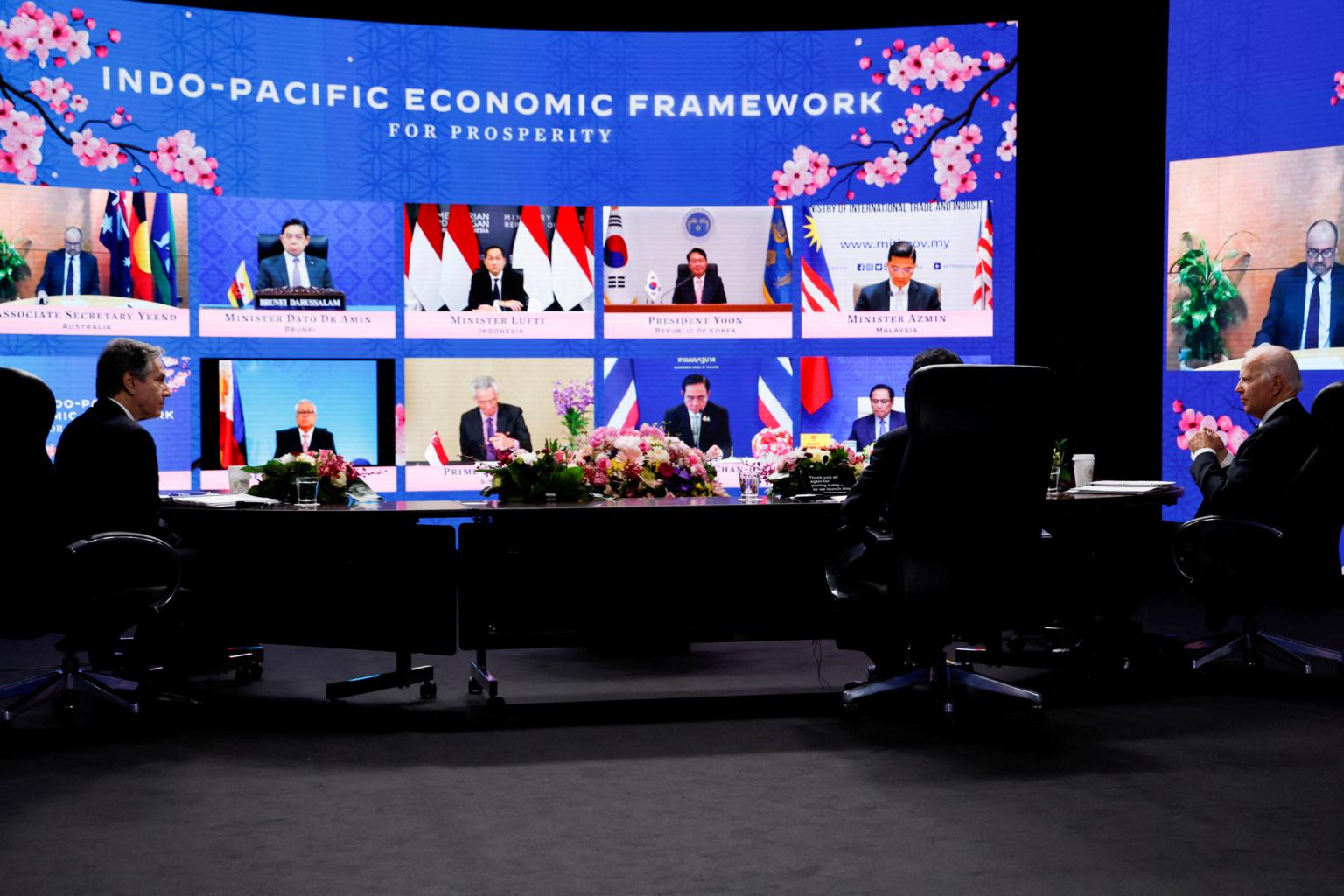US trade initiative seen by China as a means to divide countries
Sign up now: Get insights on Asia's fast-moving developments

The IPEF trade initiative was unveiled by US President Joe Biden in Tokyo on May 23, 2022.
PHOTO: REUTERS
Follow topic:
BEIJING - Beijing has accused Washington of creating division with its newly announced Indo-Pacific Economic Framework (IPEF), saying that it was forcing countries in the region to pick sides between the US and China.
Chinese Foreign Ministry spokesman Wang Wenbin said any attempt by the US to play "camp politics" in the Asia-Pacific, create another version of Nato, or wage a Cold War there would not succeed.
"The US is trying to use this framework to isolate China, but it will only isolate itself in the end," said Mr Wang at a regular press briefing on Monday (May 23).
The IPEF trade initiative was unveiled by US President Joe Biden in Tokyo on Monday while on a visit.
The IPEF is part of the Biden administration's strategy to step up its economic engagement of the Asia-Pacific, after the US walked away from the Trans-Pacific Partnership (TPP) trade pact in 2017.
Apart from the US, 12 countries have signed up to the IPEF - namely Australia, Brunei, India, Indonesia, Japan, Malaysia, New Zealand, the Philippines, Singapore, South Korea, Thailand and Vietnam.
Unlike typical trade pacts, the IPEF will not include provisions for market access. Instead, it aims to integrate members through agreed standards in four main areas: the digital economy, supply chains, clean energy infrastructure and anti-corruption measures.
Mr Bert Hofman, director of the East Asian Institute at the National University of Singapore, wrote on Twitter: "To me, the best analogy (for the IPEF) is the Organisation for Economic Cooperation and Development (OECD), a club of like-minded countries and a mechanism to agree on codes of conduct and guidelines, which individual countries then can follow in their own legislation."
Under the Biden administration, Washington has been strengthening partnerships to confront China, and the IPEF is widely seen as its attempt to challenge China's dominance in trade and economics in the region.
"A very important point is that the US wants to create and set new standards for trade in the region through this framework - this is clearly aimed at China," said Professor Zhu Feng, dean of the Institute of International Relations at Nanjing University.
"Will these standards in this framework become new conditions or new barriers for countries to further develop their economic and trade relations with China?"
China has deep trade ties with many of the initial members of the IPEF - for instance, it is the top trading partner of the seven Asean states that are members.
All the initial IPEF members except the US and India are also members of the Asean-led Regional Comprehensive Economic Partnership (RCEP) trade pact, of which China is also a part.
That these countries have signed up to the IPEF also drives home the point to Beijing that America's "political and diplomatic influence is definitely still greater than China's for these countries", said Prof Zhu.
In the lead-up to Mr Biden's Asia visit, which also includes South Korea, Beijing had accused the US of playing bloc-politics in the region. This underlies concerns that Beijing has about the IPEF.
On Monday (May 23), Foreign Minister Wang Yi, without naming the IPEF, pledged that Beijing would continue to "expand high-level opening up, promote high-quality construction of the Belt and Road Initiative, facilitate the interconnectivity of the Asia-Pacific and safeguard security and stability of regional supply chains".

